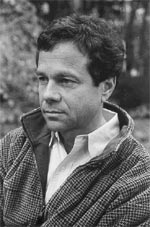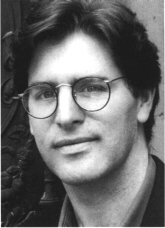

Physicists in the Field of Fiction
BCLA: Invention, Leeds, July 2004
Bourdieu’s concepts of field, position-taking
and gatekeeping are useful for discussing the relationship
between
literature and science. What happens when a physicist wishes to become
a
fiction writer? How does one navigate the entry into the new field and
its
systems of selection? Who are the gatekeepers and how does one get past
them?
Which types of subject matter are acceptable and which are not? How
does one
negotiate the critical reception of one’s first novel into a lasting
career?
This paper analyses the entry into the field of
fiction writing of two physicists/literati, combining an assessment of
the
reception of their works with analyses of the works themselves. Their
debut
novels both hinge on themes springing out of the authors’ original
field: Alan
Lightman’s Einstein’s
Dreams (1993) treats the temporal
paradoxes of
Einstein’s relativity theory. Andrew Crumey’s Music
in a Foreign
Language
(1994) describes the dialogues on politics and ideology between
scholars in the
fields of physics and history, and how the world, when regarded through
the
lens of probability theory, becomes a labyrinth of alternative
possibilities.
Both debuts were well received, and the authors have continued their
fiction
careers, gradually deviating from the physics content of their debuts
and
attempting ‘purer’ literary expression – a position-taking strategy
which has
led to varying degree of critical success, illustrating the potentially
limiting function of gatekeeping in the literary field.
 |
 |
| Lightman | Crumey |